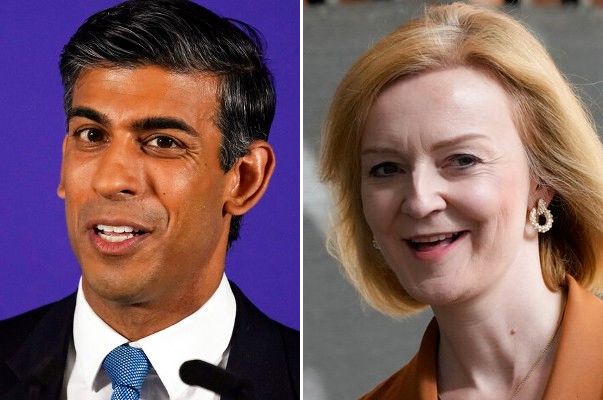Liz Truss vowed that if elected, local councils would no longer be permitted to engage in Boycott, Divestment and Sanctions policies against Israel.
By Debbie Reiss, World Israel New
British Foreign Secretary Liz Truss has pledged to “review” moving the British embassy in Israel from Tel Aviv to Jerusalem if she takes over from Boris Johnson as prime minister following the Conservative party’s leadership election next month.
“I understand the importance and sensitivity of the location of the British Embassy in Israel,” Truss wrote in a letter to the Conservative Friends of Israel. “I’ve had many conversations with my good friend Prime Minister Lapid on this topic. Acknowledging that, I will review a move to ensure we are operating on the strongest footing within Israel.”
The Tory contender also warned that if Iran continues to refuse to close a nuclear deal, then “all options are on the table” – implying that she would throw her support behind military action by Israel or the U.S.
She vowed that if elected, local councils would no longer be permitted to engage in Boycott, Divestment and Sanctions (BDS) policies against Israel.
“Public bodies should not be engaging in such discriminatory policies which go against the stance of this Government and sow needless division. I will ensure that this is put to a stop,” she said.
Truss promised to ensure that the British public is educated on the “dangers of antisemitism and the role it plays in driving anti-Zionism and anti-Israel sentiment.”
She also said she would call to abolish Agenda Item 7 in the UN Human Rights Council targeting Israel. Israel is the only country to have a permanent agenda directed at it.
Former chancellor and Truss rival Rishi Sunak also pledged his support for Israel and British Jewry in a letter to CFI. He hailed the Abraham Accords and said the UK should leverage its “strong ties” to expand the circle of countries normalizing ties with Israel.
He was more reserved when it came to Iran and refrained from alluding to a military option.
Sunak said he would seek “a new, strengthened nuclear deal that extends the sunset clauses, lengthens the breakout period and curtails Iran’s ballistic missile program. The credible threat of snapback sanctions, which has so far been missing from the negotiations, is the only way we can force Iran to seriously engage with these proposals.”
“Iran’s quest for regional hegemony and the threat it poses to Israel concerns me deeply,” Sunak wrote. “We cannot allow Iran to possess a nuclear weapon, and the UK and Israel must enhance our diplomatic, defense and intelligence cooperation to prevent this from happening.”
He did, however, call for the Iranian Revolutionary Guard Corps to be designated as a terror group, adding that Iran was the “largest state sponsor of terrorism.”





